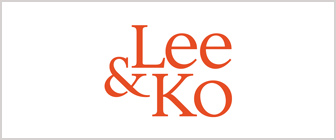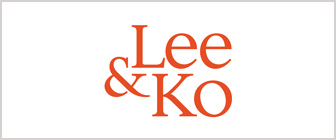A proposal for partial amendment (Amendment) to the Financial Investment Services and Capital Markets Act (FISCMA) for the purpose of strengthening the regulation of unfair trading passed the plenary session of the National Assembly of Korea on June 30, 2023 and was promulgated on July 18, 2023. The Amendment mainly aims to fill in the gaps that exist in the practical aspects of the criminal sanction on the use of non-public, material information, manipulation of market price, and unjust trading, and to deprive of the unjust enrichment gained therefrom. The substance of the Amendment is as follows:
1. Current System of Unfair Trading Regulations
The current FISCMA prohibits unfair trading that causes damage to other participants in the market by distorting the price formation functions of the market or using information asymmetry. The “three major types of unfair trading practices”, which are the use of non-public, material information, manipulation of market price, and unjust trading, are subject to criminal sanctions, and the wider disturbance of market order is subject to administrative sanctions that impose administrative monetary penalties.
| Type of Act | Specifics | Sanction | |
| Criminal Sanction | Administrative Sanction | ||
|
Use of Non-public, Material Information |
An insider of a company using, or causing others to use, non-public information of the company in trading of securities, etc. |
O Imprisonment, criminal fine, confiscation, collection |
X |
|
Manipulation of Market Price |
Certain group deliberately causing fluctuation of market price of securities, etc. | ||
|
Unjust Trading |
Deceiving investors by using unjust means or spreading rumors, etc. | ||
|
Disturbance of Market Order |
Those acts that are not the “three major types of unfair trading practices”, but harm the soundness of the market | X |
O Administrative monetary penalties |
2. Expansion of Administrative Monetary Penalty System
Recently, while there have been a series of intelligent, systematic unfair trading, a strict burden of proof applied for criminal sanctions, which resulted in many cases of unfair trading not being sanctioned or only being subject to light sanctions, and this has faced some criticism. Responding to this, the Amendment provided grounds for imposing administrative monetary penalties on those engaged in the three major types of unfair trading practices, allowing for 1) the imposition of administrative monetary penalties equivalent to twice the amount of unjust enrichment gained from unfair trading on those engaged in the use of non-public, material information, manipulation of market price, and unjust trading, as well as those causing disturbance of market order, and 2) if it is difficult to calculate the amount of unjust enrichment, the imposition of administrative monetary penalties in the amount of KRW 4,000,000,000 or under.
The calculation of unjust enrichment, which was previously determined as ‘total earnings from the transactions involving unfair trading’, has also been modified to clarify that ‘total costs for such transactions are to be deducted’, and more specific details of the calculation is to be set forth under the presidential decree and the subordinate laws.
3. Link with Criminal Sanctions
The Amendment has actively adopted a system of imposing administrative monetary penalties, and at the same time, has made corresponding changes to the existing criminal sanction system. Specifically, 1) administrative monetary penalties are to be deducted or cancelled by an amount equivalent to the amount of criminal fine imposed as criminal sanctions. Further, 2) if materials related to investigation are needed in order to impose administrative monetary penalties, the Prosecutors’ Office may provide relevant materials to the Financial Services Commission. In order for utilization of the newly introduced administrative monetary penalties system and the existing criminal sanction system, the Amendment allows for 3) reduction or waiver of the administrative monetary penalties or criminal sanction if a person engaged in unfair trading voluntarily turns oneself in or makes voluntary reporting and as a result, becomes subject to administrative monetary penalties or criminal sanction.
The changes brought by the Amendment are briefly as follows:
| Type of Act | Sanction | |
| Criminal Sanction | Administrative Sanction | |
|
Use of Non-public, Material Information |
|
|
|
Manipulation of Market Price |
||
|
Unjust Trading |
||
|
Disturbance of Market Order |
X |
O Administrative monetary penalties |
4. Implications
The Amendment will be enforced starting on January 19, 2024, which is 6 months after the promulgation. While it is necessary to keep following up on the authority setting up guidelines for specific calculation of administrative monetary penalties and specific criteria for sanctions, with the enforcement of the Amendment, the level of regulation on unfair trading is expected to be heightened.
If you have any questions regarding this article, please contact below:
Hyunjoo Oh (hyunjoo.oh@leeko.com)
Seunga Hyun (seunga.hyun@leeko.com)
Dongyon Kim (dongyon.kim@leeko.com)
Sanghyun Ahn (sanghyun.ahn@leeko.com)
Kyuhyeok Choi (kyuhyeok.choi@leeko.com)
For more information, please visit our website: www.leeko.com



